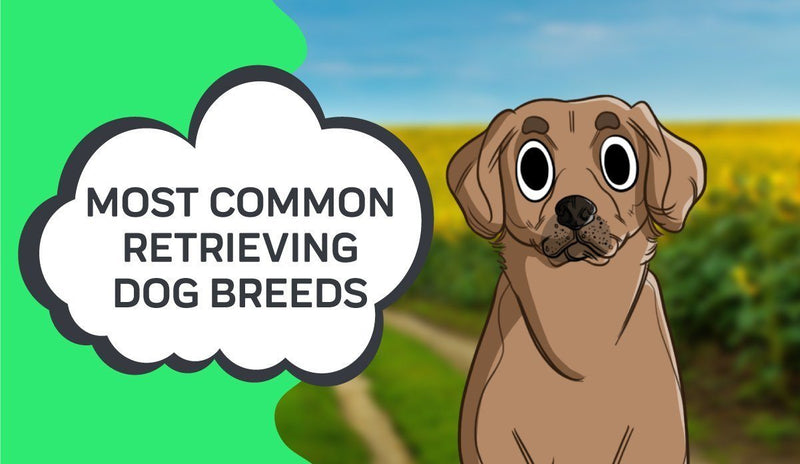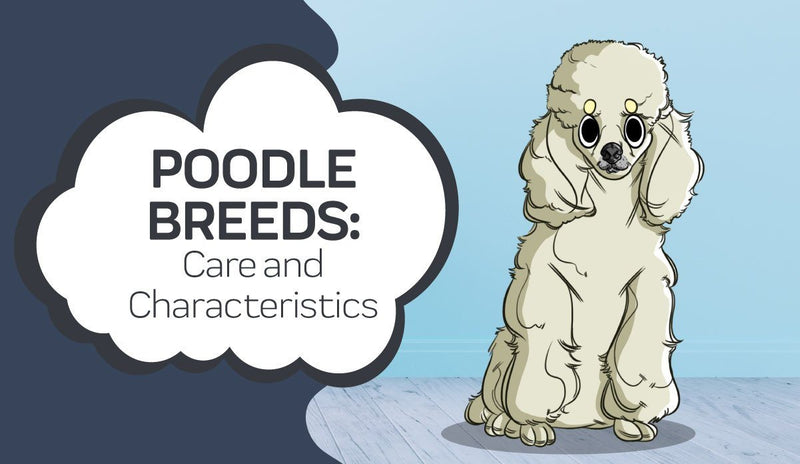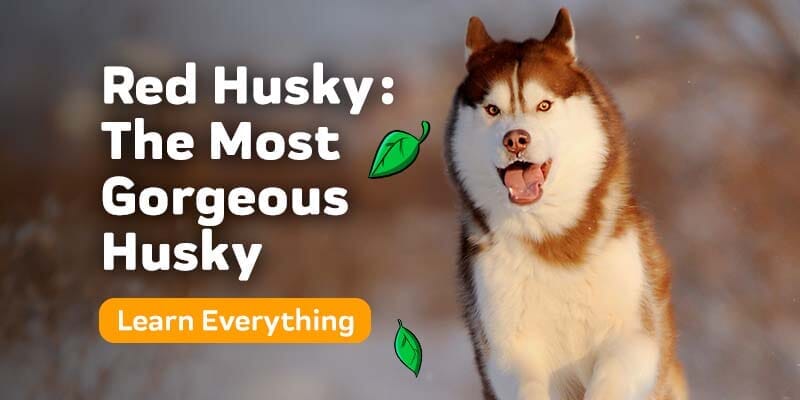
Poodles are some of the cutest dogs in the entire world. From their tight curls and inviting vibes, to their reputation as a designer dog and upbeat attitudes, poodles are a highly sought after breed of dogs. Poodles are not only popular in their purest form, either. In fact, poodles are very commonly bred with other dog breeds in order to create other breeds of dogs. For example, you might have heard of dogs like Golden Doodles and Yorkie Poos, or Maltipoos and Labradoodles.
Here is an easy way of understanding which two breeds are bred to create these dog breeds…
- Golden Doodles = Golden Retriever + Poodle
- Yorkie Poos = Yorkshire Terriers + Poodle
- Maltipoos = Maltese + Poodle
- Labradoodle = Labrador Retriever + Poodle
The easiest way to detect if a mixed dog breed is partly poodle is to take a look at the name of the dog breed. The names will have some rendition of poodle as part of the name of the breed. Labradoodles have oodle in them, which is the part of the name that derives from poodle. Maltipoos take the poo part of poodle and combine it with the first half of the dog breed name, Maltese.
Poodles can be born with any of an array of colors, including blueish grey, apricot, rusty orange, brown, tan, black, cream, eggshell, amber, silver, and white. A mix of these colors can also result from breeding poodles of different colors, which will produce a baby poodle with either spotted fur or fur that is a color made from combining the fur of the parents. The eye coloring, nose shapes, and other specifics of poodles often coincide with fur color and coat patterns, so these traits tend to vary from one poodle to the next.
Different Types of Poodles
When talking about poodles, it’s important to note that there are various types of poodles within the one dog breed. To be exact, there are five different types of poodles.
These distinct categories of the poodle dog breed include…
- Klein poodles
- Miniature poodles
- Standard poodles
- Teacup poodles
- Toy poodles
Klein Poodles
While Klein poodles are technically different from standard poodles, they are not officially recognized as being a breed of their own. Even so, people looking to adopt a poodle and breeders who sell poodles alike often agree that Klein poodles are a poodle breed of their own. Klein poodles are most often shown in dog shows, and they make for viable candidates in showcases because of their natural beauty, poise, and eloquence. On average, a Klein poodle will weigh anywhere from forty pounds to fifty pounds. Klein poodles are also known for reaching a height range of anywhere between fifteen and twenty inches tall.
Miniature Poodles
Miniature poodles are anywhere between eleven inches tall to fifteen inches in height. Though their name might suggest that these poodles are incredibly small, miniature poodles are not actually the smallest poodle type. Toy poodles and teacup poodles have shorter statures and overall average height measurements than miniature poodles. Even so, miniature poodles are smaller than standard poodles and Klein poodles as well. The average weight of a miniature poodle is within a range of fourteen pounds to eighteen pounds when full-grown.
Standard Poodles
Standard poodles are the most common type of poodle that people own as pets, as well as the most popular type of poodle that is bred on an annual basis. The shortest known height of a standard poodle is about fifteen inches tall, but most often, a standard poodle measures at anywhere between twenty and twenty-three inches in height. Since standard poodles are relatively tall in comparison to the other four types of poodles, it only makes sense that they weigh the most, too. Usually, a standard poodle will weight anywhere between forty-five and eighty pounds as an adult.
Teacup Poodles
Teacup poodles are known for their very small sizes. Even tinier than miniature poodles, teacup poodles tend to remain under or barely above seven pounds, even when fully grown. The one piece of advice that we would like to offer regarding teacup poodles is that breeders who sell them do not often take the health and safety of teacup poodles into consideration. Instead, teacup poodles are bred for a smaller size, whether that size is actually a healthy height and weight or not.
Teacup poodles are not always bred with health concerns being a given, but just know that teacup poodles are not always the wisest route to take when looking to adopt a poodle. You could be supporting a breeder with unethical or lazy practices, so be sure to look into the breeder and educate yourselves on the circumstances that go into play when breeders breed for toy poodles.
Toy Poodles
Toy poodles are named as such because of their short stature and minimal weight. Toy poodles are recognized for their petite features, and holding a toy poodle is like cradling a toy puppy dog or stuffed animal version of a puppy. In the most rare of circumstances, a toy poodle will weight ten pounds, but more realistically, toy poodles do not exceed nine pounds, on average, with the lowest weight of a toy poodle being around six pounds, give or take a few ounces.
Toy poodles are perfect lap dogs because they never reach a weight, height, or overall size that would make them too big for naps in their owners' laps. Toy poodles tend to be anywhere between eight and ten inches tall, so just imagine a small little puppy prancing around your home and you'll have an idea of what it's like to have a poodle companion in your home.
The Temperament of Poodles
The temperament of a poodle refers to what the poodle is like when born. Personalities change, adjust, and blossom over the course of a poodle's life, but poodle temperaments tend to predict the reactions, habitual behavior, and baseline mood of a poodle. So, in terms of temperament, poodles are described as being attentive, loving, loyal to owners and friends alike, full of wisdom, very intelligent, energetic, hyperactive, easy to train, led by their instincts, and wise beyond their years.
The standard poodle temperament and the toy poodle temperament are very similar, which is just one of many examples that goes to show how closely-aligned every type of poodle is, despite being categorized separately. However, just because the temperaments of poodles across the board are similar, it does not make them identical. There are discrepancies here and there when it comes to standard poodle temperament, toy poodle temperament, and miniature poodle temperament.
Miniature poodles are best for families that have children because they are so small that there is little to no risk posed to children in terms of physical size. A miniature poodle is the perfect height and weight for babies, toddlers, and smaller children alike. Standard poodles are truly great for families of any size and for people of any age. If you are concerned about the height of a standard poodle and how that might play out with young kids in the home, just know that standard poodles are not going to pose a threat to anyone in the home. Their size aside, standard poodles are very docile.
They are very relaxed outside of playtime and they are gentle souls as well. Toy poodles are not as ideal for small children as you may think. Believe it or not, toy poodles are actually viewed as being too small for kids to play with, particularly because young children might handle the poodle pup a little too harshly, which is damaging to an already-tiny dog. Also, toy poodle temperament makes toy poodles very sensitive to loud noises, angry tones, and upset voices, so toy poodles are best for adults whose children have either aged into adolescence or moved out of the house entirely.
Poodle Personalities

Personality traits vary from one individual puppy to another, just like they do for humans. Not all poodles have the same personality traits, but there are many characteristics that poodles share with each other as part of the same breed. One of the most commonly attributed descriptors for poodles is that they are very smart, intellectual dogs. Poodle personalities contribute to dogs that already have incredible brain power and a knack for picking up on everything going on in their environments.
Their high intelligence levels make it fairly easy for owners to train their poodles from the get-go. Poodles are active, outgoing, and ready for adventures where physical activity is involved. They love to be involved in activities, and their favorite activities are anything that they get to do with their beloved owners. Poodles are very family-oriented in the sense that they prefer to be around their owners and people with whom they have a lot of familiarity. If a poodle is left in a situation where he or she does not know anyone around them very well, then situations of anxiety may arise - particularly separation anxiety in dogs.
Though the anxious symptoms should subside eventually, it is not uncommon for poodles to experience long-term anxiety out of fear that they will be in an unwanted situation again in the near future. If your poodle is having a bout of anxiousness or stress-related nerves, then you might want to look into natural and alternative treatments for anxiety.
Poodles do not often experience a lot of stress and anxiety, and it is not a given that your poodle will run into an anxiety-filled episode. However, stress and panic are unavoidable circumstances because things do happen and your pup is susceptible to experiencing anxiety as some point in his or her lifetime, whether it is the result of a predisposition in your poodle’s personality and temperament, or if it takes place outside of natural tendencies.
Thankfully for poodles and pet owners alike, your poodle pal does not need to succumb to a life of anxiety. There are various ways to help your dog’s anxiety settle down and enable your dog to return to a happy life full of playtime, adventures, and fun with the family. Cannabidiol is a widely- and heavily-researched supplement for dogs that experience anxiety and need relief from the unfortunate symptoms that anxiety inflicts, both physically and mentally.
Where to Purchase CBD Oil for Poodles
If your poodle faces seriously anxious symptoms or behaviors, then we certainly urge you to look into purchasing CBD for your dog with anxiety. Though we understand that CBD sounds like a frightening alternative for the parents of pets who do not understand the implications or benefits of cannabidiol, we would like to take an opportunity to educate any pet owners who are not incredibly familiar with CBD for poodles with anxiety. Something worth mentioning before anything else is that CBD does not contain the ingredient that is necessary in order for people, pets, or any other creatures to experience the feeling of getting high.
See, even though cannabidiol is related to the cannabis plant, it has very little to do with what you think about when you bring to mind marijuana. Cannabis is so often associated solely with its psychoactive abilities, but people forget to remember that cannabis as a whole does not get you high. Rather, there are "ingredients," if you will, that exist within the cannabis plant, and they are referred to as cannabinoids. In order to get high from marijuana or anything cannabis-related, the cannabis product must contain the cannabinoid by the name of tetrahydrocannabinol.

You might recognize this phytocannabinoid much better by its anagram, THC. Tetrahydrocannabinol is not present in CBD oil. In fact, you can even consider THC to be a polar opposite cannabinoid in relation to cannabidiol.
Tetrahydrocannabinol is responsible for the psychoactive properties that people so often chase when using marijuana for leisure or medicinal purposes.While THC poses a myriad of benefits for people whose brains are compatible with psychotropic effects, animals are not able to ingest THC in any amount. Tetrahydrocannabinol poses many health concerns, risks, and internal injuries for your poodle, if he or she were to ever get ahold of cannabis that contains THC.
But CBD is the exact opposite. In fact, you might be surprised how beneficial cannabidiol is for dogs of all breeds, including poodles of each category. The main reason that pet owners travel down the road of CBD for dogs is when anxiety arises in their poodles. From separation anxiety and situational panic attacks, to low-functioning anxious behaviors and the occasional anxious moment, CBD can calm your dog naturally, efficiently, and safely. The biggest perk of CBD for anxious poodles is the way that it is the most natural way of treating anxiety. This is especially true when you purchase CBD from Innovet for your dog!
At Innovet, every cannabidiol product that we offer is fully checked for quality and produced with nothing but naturally-grown CBD that is certainly suitable for pets. Our CBD is derived from hemp plants grown in the USA state of Colorado, and our trusted partners triple-check our products prior to us listing them as available on our website.

The hemp that we implement in our products for dogs is made from 100% phytocannabinoid hemp plants, and you can trust that all Innovet pet products are free from harsh chemicals, detrimental additives, unnecessary preservatives, or pesticides of any kind by checking our Certificate of Analysis Records. To comfort pet parents even further, we make sure to note that our CBD for pets falls below the minimum amount of THC that cannabidiol can contain in order to remain psychotropic-free.
The rule is that CBD cannot contain more than 0.3% THC, and we adhere to that like our lives depend on it. We strive to make sure that our CBD products are accessible to dogs of all breeds, preferences, sizes, and more, so we offer CBD for poodles in a few different ways. Our most popular CBD product is our cannabinoid oil for pets. It can be administered by way of a bottle and an easy-to-disperse dropper. Even though our CBD oil for poodles is very simple to administer in this form, it is not always the best method for every single poodle out there.
Some dogs do not appreciate having something applied to their fur or dropped into their mouths, so we took that into consideration and made sure to design other methods of CBD for pets. Our other four options regarding CBD for poodles include hemp dog vitamins, swallowable capsules, balm that you can apply to their sore sports, and doggy treats infused with CBD.
Cannabidiol for anxious poodles is the safest, most natural, and smoothest way of resolving anxiety in your pet. We know your dog will feel a million times lighter, happier, and less stressed with CBD from Innovet. Feel free to view our inventory of CBD products for poodles, and let us know if there is anything we can help you with!
Sources:
Poodle
Poodle Dog Breed Information and Personality Traits
Poodle
Approved by:
Dr. Sara Ochoa
Doctor of Veterinary Medicine, St. Georges University

Thanks for stopping by!
P.S. We Love You!
Sincerely,
The Innovet Team
Please do not ask for emergency or specific medical questions about your pets in the comments. Innovet Pet Products is unable to provide you with specific medical advice or counseling. A detailed physical exam, patient history, and an established veterinarian are required to provide specific medical advice. If you are worried that your pet requires emergency attention or if you have specific medical questions related to your pet’s current or chronic health conditions, please contact or visit your local/preferred veterinarian, an animal-specific poison control hotline, or your local emergency veterinary care center.
Please share your experiences and stories, your opinions and feedback about this blog, or what you've learned that you'd like to share with others.
















